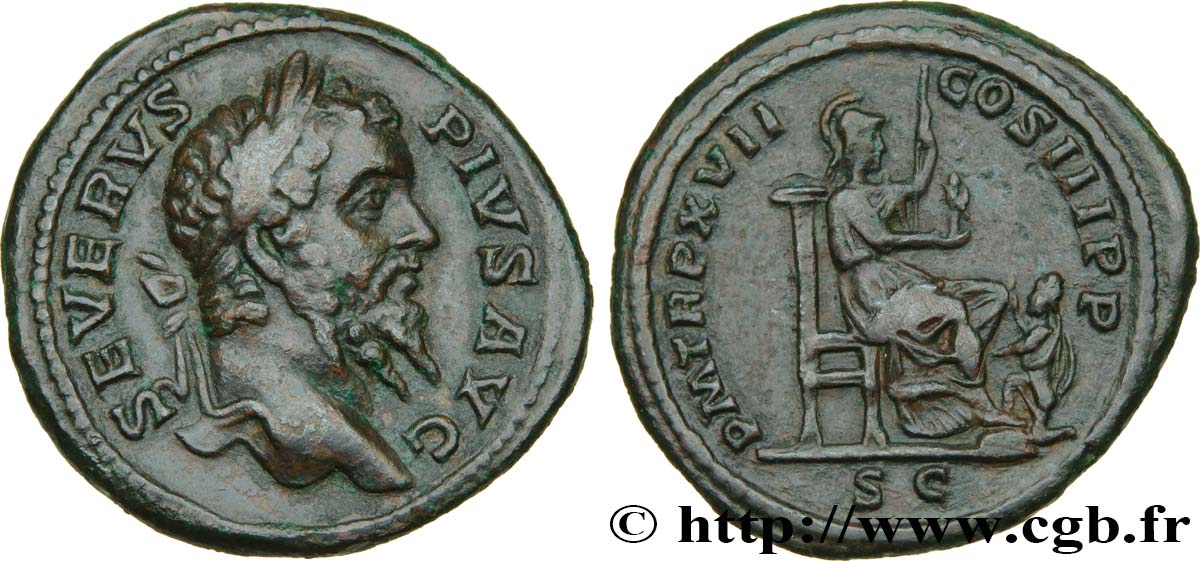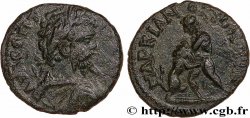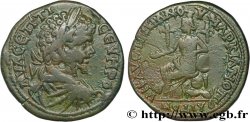brm_548628 - SEPTIMIUS SEVERUS As
Not available.
Item sold on our e-shop (2019)
Price : 250.00 €
Item sold on our e-shop (2019)
Price : 250.00 €
Type : As
Date: 210
Mint name / Town : Roma
Metal : copper
Diameter : 26 mm
Orientation dies : 6 h.
Weight : 11,22 g.
Rarity : R1
Officine: 1re
Coments on the condition:
Exemplaire très agréable sur un flan idéalement centré . Joli revers, bien détaillé. Monnaie quasi TTB+. Patine marron
Catalogue references :
Predigree :
Exemplaire provenant de la vente Elsen 128, lot n° 238 et de la collection M. P
Obverse
Obverse legend : SEVERVS - PIVS AVG.
Obverse description : Tête laurée de Septime Sévère à droite (O*).
Obverse translation : "Severus Pius Augustus" (Sévère pieux auguste).
Reverse
Reverse legend : P M TRP XVIII - COS III P P/ S|C.
Reverse description : Rome assise à droite tenant le palladium de la main droite et une haste de la gauche ; devant elle, un captif agenouillé, tendant la main.
Reverse translation : "Pontifex MaximusTribunicia Potestas octavum decimum Consul tertium Pater Patriae" (Grand Pontife détenteur de la Puissance tribunicienne pour la dix-huitième fois Consul trois fois Père de la Patrie).








 Report a mistake
Report a mistake Print the page
Print the page Share my selection
Share my selection Ask a question
Ask a question Consign / sell
Consign / sell
 Full data
Full data



